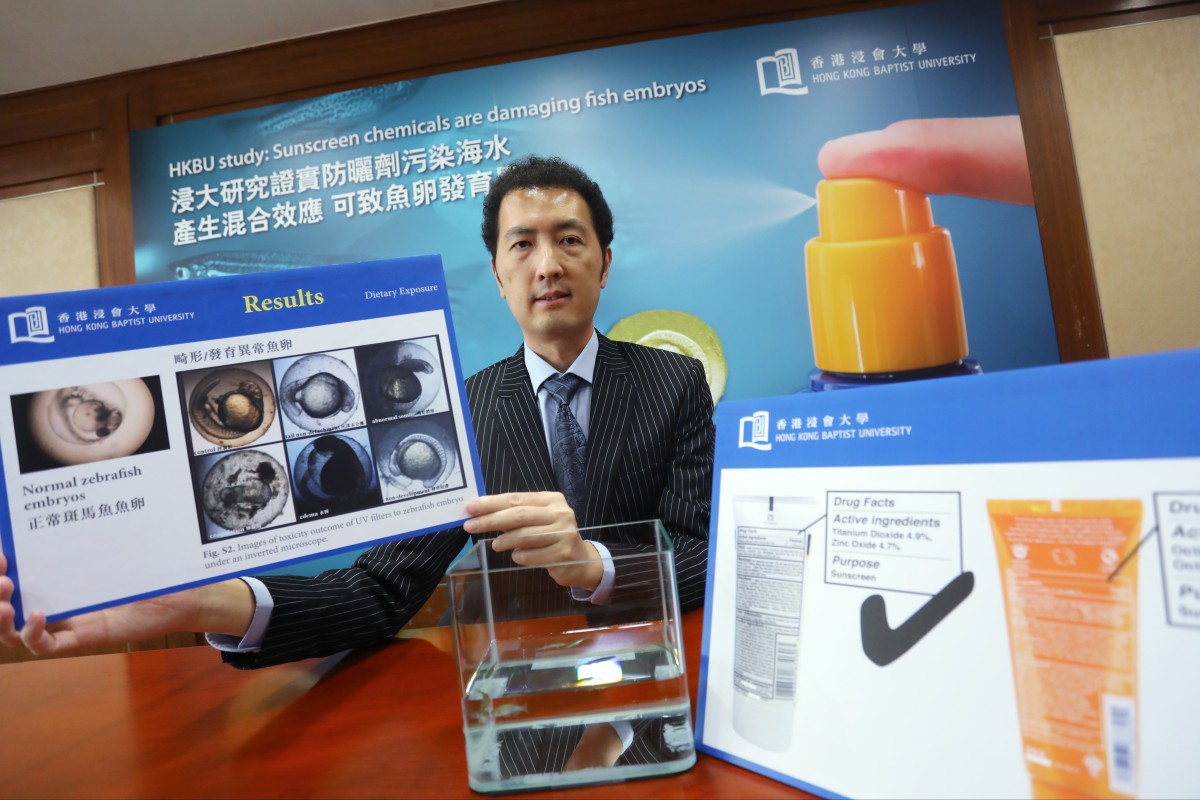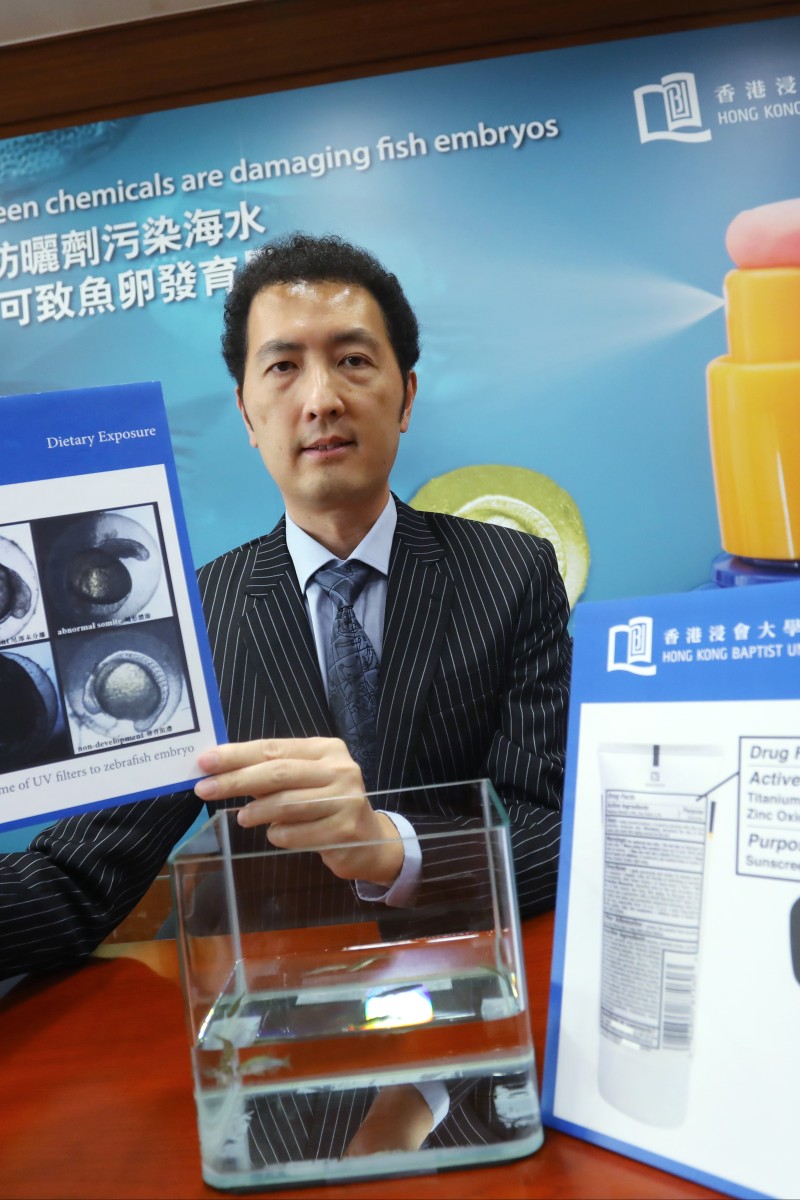 HKBU’s Kelvin Leung called for further research on effective ways to remove UV filters from the ocean.
HKBU’s Kelvin Leung called for further research on effective ways to remove UV filters from the ocean. Chemicals from sunscreen that are washed into the ocean could be harmful to human health, a study by Baptist University (HKBU) has found. The research, published last Thursday, is the first to look at the negative effects caused by the build-up of chemicals in sunscreens.
The study focused on the effects of sunscreen chemicals on zebrafish, a type of fish which shares some DNA with humans. It found that ultraviolet (UV) filters – the ingredients in sunscreens that protect people from the sun’s UV rays – can accumulate in the ocean and cause abnormalities in, or even kill, the offspring of zebrafish by entering the food chain.
These filters can enter the sea either directly from people swimming in the ocean, or indirectly through waste water.
Are paper straws really better for the environment than plastic ones?
As more than 70 per cent of the zebrafish’s genetic structure is the same as a human’s, the results imply that these chemicals could also pose a risk to humans.
Researchers collected seawater from 30 locations around Hong Kong. They found traces of seven commonly-used UV filters in the samples.
The scientists also took zebrafish from seven local aquaculture farms. They then simulated a real aquatic environment by feeding the fish contaminated shrimps for 47 days. Although none of the adult zebrafish seemed to be affected, several of their embryos were found to have abnormalities.
Microbeads are polluting Hong Kong’s waters, and the source is likely local
The 24-hour mortality rate of the embryos rose from 10 per cent to nearly 60 per cent, while the 72-hour hatching rate dropped from 80 per cent to less than 30 per cent.
The study also discovered when UV filters BP-3, EHMC and OC were all present in seawater together, they created “a mixture effect” that caused them to accumulate inside the zebrafish at a rate 4.2 times higher than when only one chemical was present.
“The public should use mineral-based sunscreens, which contain titanium dioxide and zinc oxide, instead of UV filters,” said head researcher Kelvin Leung Sze-yin. He also called for further research on effective ways to remove UV filters from the ocean, noting the importance of considering the long-term impact on human fertility.

